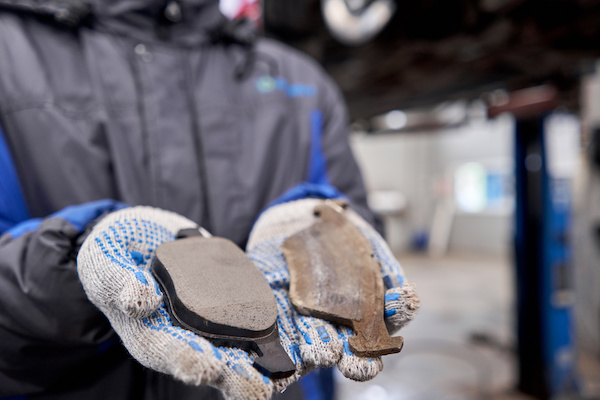Posted on 2/14/2025

Keeping up with car maintenance is the best way to ensure a reliable and long-lasting vehicle. Most drivers know the importance of oil changes, tire rotations, and brake inspections, but there are plenty of other maintenance tasks that often go unnoticed. Ignoring these lesser-known services might not seem like a big deal at first, but over time, they can lead to expensive repairs and performance issues. If you want to keep your car in top shape, here are some of the most overlooked maintenance tasks that deserve more attention. Checking and Replacing Cabin and Engine Air Filters Air filters might not seem like a priority, but they play a crucial role in your car’s overall performance and comfort. The cabin air filter is responsible for keeping dust, pollen, and pollutants out of the air you breathe inside your car. A clogged filter can lead to poor airflow, unpleasant odors, and even strain on your HVAC system. If you’ve noticed weaker air conditioning o ... read more
Posted on 2/1/2025

In Pennsylvania, the changing seasons bring both beauty and challenges. From icy winter roads to humid summers, the state’s climate can take a toll on your vehicle—particularly when it comes to rust. With road salt, heavy rain, and humidity, Pennsylvania’s conditions are ideal for rust to form if a vehicle isn’t properly protected. Here’s a guide to help you prevent rust and keep your car looking and running its best, no matter what the seasons throw at it. 1. Wash Your Vehicle Regularly—Especially in Winter In Pennsylvania, winter road salt is one of the biggest contributors to rust. Salt accelerates corrosion, particularly on exposed metal parts. A layer of road salt left on your vehicle over time can lead to rust spots and even damage crucial components, like brake lines. To combat this, wash your car frequently during winter—at least every two weeks. Make it a priority after heavy snowstorms or slushy conditions, when salt is heavily appl ... read more
Posted on 1/31/2025

It’s easy to ignore the fuel warning light when you’re focused on getting to your destination. Maybe you’re trying to save time or thinking about stretching your budget a little further. But driving with low fuel levels is more than just a minor gamble—it can lead to costly damage and a range of unnecessary headaches. We'll explain why keeping your gas tank adequately filled is one of the simplest yet most effective ways to protect your car and wallet. How Your Fuel System Works Your car’s fuel system is more complex than many people realize. At the heart of it lies the fuel pump, which pulls gas from the tank and sends it to the engine. For this pump to function properly, it relies on a steady supply of fuel not only to operate but also to stay cool. When your tank is nearly empty, the pump has to work harder to deliver what little gas is left. This extra effort generates heat and increases wear and tear, which can eventually lead ... read more
Posted on 1/1/2025

Why Being Mindful Makes You a Better Driver As the new year begins, it’s a great time to think about how to approach daily routines, like driving, with a fresh perspective. Mindful driving can transform your time on the road from a stressful experience into one that promotes calmness, focus, and safety. Mindfulness—the practice of staying present and attentive—helps reduce distractions, improve reaction times, and create a safer driving environment for everyone. Here’s how being mindful can make you a better driver in 2025. 1. Mindfulness Reduces Distracted Driving Distracted driving is a significant issue on the road, often resulting in missed signals, slower reaction times, and accidents. Mindfulness can help drivers become more aware of their habits behind the wheel, leading to fewer distractions. By focusing solely on the act of driving, we naturally let go of the impulse to check our phones or become lost in thought. According to Harvard’s Center f ... read more
Posted on 12/20/2024

You step outside to find a mysterious puddle under your car. What is it, and should you be concerned? Car fluid leaks can feel like a frustrating guessing game, but they signal something important about your vehicle's health. Whether you're cruising around Easton, PA, or parked in your driveway, understanding the signs and causes of fluid leaks can save you time, money, and stress. Let’s unravel this mystery and help you keep your car in great shape. Fluid Leaks Ignoring a fluid leak is never a good idea. Each type of fluid in your car serves a vital purpose, from lubricating the engine to keeping your brakes reliable. When something is leaking, it’s often a warning sign that a component isn’t functioning as it should. Left unchecked, even a small leak can escalate into a costly repair. Leaks can also impact your car’s performance and safety. For example, a brake fluid leak compromises your ability to stop, while a ... read more